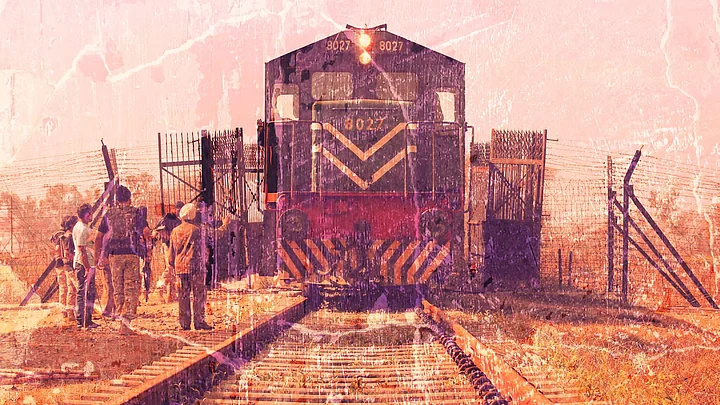A special court, which had acquitted Swami Aseemanand and three others in the Samjhauta Express train blast case, has said there were "gaping holes" in the prosecution evidence and a dastardly act of violence remained unpunished for want of credible and admissible evidence.
Naba Kumar Sarkar alias Swami Aseemanand, Lokesh Sharma, Kamal Chauhan and Rajinder Chaudhary were acquitted by the NIA court here on 20 March.
The judge said terrorism has no religion and it is generally noticed that a malaise has set in the investigating agencies which coin various terms- Muslim terrorism, Hindu fundamentalism etc. "A criminal element, belonging to a particular religion, community or caste, cannot be projected as representative of such particular religion, community or caste and branding the entire community, caste or religion in the name of such criminal element(s) would be totally unjustified.
"It would be in the best interests of human kind to nip such tendencies in the bud lest we should be heading towards intense civil war or caught in a whirlpool of fratricide," National Investigation Agency (NIA) court special Judge Jagdeep Singh said in his 160-page judgment that was made public Thursday.
The blast in the India-Pakistan train took place near Panipat in Haryana on 18 February 2007, when it was on its way to Attari in Amritsar, the last station on the Indian side. Sixty-eight people were killed in the blast.
"I have to conclude this judgment with deep pain and anguish as a dastardly act of violence remained unpunished for want of credible and admissible evidence. There are gaping holes in the prosecution evidence and an act of terrorism has remained unsolved," he said.
The judge said terrorism has no religion because no religion in the world preaches violence.
He said a Court of Law is not supposed to proceed on popular or predominant public perception or the political discourse of the day and ultimately it has to appreciate the evidence on record and arrive at final conclusion on the basis of relevant statutory provisions and settled law applicable to that, he said.
"Since findings of a court of law are based on admissible evidence as per law, the pain becomes more acute when perpetrators of heinous crime remain unidentified and unpunished," he said.
The judge observed that "suspicion, however, grave cannot take place of proof". "A few bits here and a few bits there on which prosecution relies cannot be held to be adequate or connecting the accused with the crime in question," he said in his judgment.
He said in the present case, there was not an iota of evidence to make out any motive on the part of the accused to indulge in the crime.
"There is no evidence on record to show as to how and from where raw materials for making/preparation of bombs were procured; as to who collected the material to prepare the explosives; as to who had prepared/assembled the bomb/explosives... Who planted the bombs in Samjhauta," he said.
He said the entire prosecution case was found to have been built on inadmissible evidence in the shape of disclosure statements of the accused, without there being any discovery of new fact, recovery of material or object.
Prosecution has failed to adduce evidence beyond reasonable doubt to make out culpability of accused persons for the charged offences, he said.
"It is high time we made this world a place of peaceful co- existence lest the sentiments of mutual hatred or false notions of supremacy over one other would engulf the planet," he said in the judgment.
The judge said that prosecution has failed to bring on record any evidence to make out any such motive on the part of accused facing the trial, while pointing to the NIA which had described the Samjhauta blasts as a revenge of jihadi attacks on Hindu temples in its charge sheet against the four accused who faced the trial.
On a large number of witnesses turning hostile in the Samjhauta case, the judge said, "The Hon'ble Supreme Court, time and again, has expressed concerns about the safety and protection of witnesses and, therefore, it is again high time we put in place some sound and workable witness protection scheme at the earliest so that every criminal trial be taken to its logical conclusion."
The judge praised late Assisant Sub Inspector of Police Kashmir Singh, who himself took up the courage to save maximum lives trapped in the burning coaches of the Samjhauta Express.
The blast had ripped apart two coaches of the cross-border train.
The Haryana police registered a case, but the probe was handed over to the NIA in July 2010.
The NIA filed a charge sheet in July 2011 against eight people for their alleged roles in the terror attack.
Of the eight, Swami Aseemanand, Lokesh Sharma, Kamal Chauhan and Rajinder Chaudhary appeared before the court and faced trial.
Sunil Joshi, the alleged mastermind of the attack, was shot dead near his home in Madhya Pradesh's Dewas district in December 2007.
The three other accused -- Ramchandra Kalsangra, Sandeep Dange and Amit -- could not be arrested and were declared proclaimed offenders.
Aseemanand had been out on bail, while three others were earlier lodged in judicial custody.
As many as 224 out of the 299 deposed before the court. Of these, 51 turned hostile.
The NIA had charged the accused with murder and criminal conspiracy, and under the Explosive Substances Act and the Railways Act.
(At The Quint, we question everything. Play an active role in shaping our journalism by becoming a member today.)
